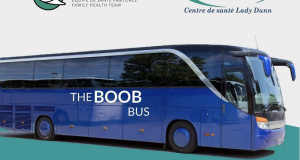 The family of former NHL enforcer Chris Simon is releasing the results of his post-mortem brain tissue analysis today through the Concussion Legacy Foundation (CLF) to raise awareness of the urgent need for medical and mental health resources available to former hockey players struggling with the long-term effects of repetitive head impacts. Simon’s family donated his brain to the UNITE Brain Bank at the Boston University CTE Center after he died by suicide in 2024 at age 52. Dr. Ann McKee diagnosed Simon with stage 3 (of 4) chronic traumatic encephalopathy (CTE).
The family of former NHL enforcer Chris Simon is releasing the results of his post-mortem brain tissue analysis today through the Concussion Legacy Foundation (CLF) to raise awareness of the urgent need for medical and mental health resources available to former hockey players struggling with the long-term effects of repetitive head impacts. Simon’s family donated his brain to the UNITE Brain Bank at the Boston University CTE Center after he died by suicide in 2024 at age 52. Dr. Ann McKee diagnosed Simon with stage 3 (of 4) chronic traumatic encephalopathy (CTE).
“Mr. Simon had severe CTE pathology in areas of the brain involved with cognition and mood regulation, and it is likely CTE contributed to his memory problems, depression, and apathy,” said Dr. Ann McKee, chief of neuropathology for the VA Boston Healthcare System and director of the Boston University CTE Center and UNITE Brain Bank. “Individuals with a significant history of repetitive head impacts in sports who report these symptoms need to be taken seriously, and our team is committed to providing them the care they need while also continuing to advance CTE research.”
Suicide is complex and multifactorial, and a post-mortem CTE diagnosis should not be considered to confirm CTE as a cause of a suicide.
To date, 19 of 20 NHL players studied at the Boston University CTE Center, including Simon, have had CTE. The diagnoses of Bobby Hull, Ralph Backstrom, Stan Mikita, Bob Probert, and Derek Boogaard were reported in a December 2024 BU study that found the odds of developing CTE increased by 34% for each year of hockey played.
Simon played professionally for 21 years, including 15 seasons in the NHL. Over his NHL career, Simon fought more than 100 times and accumulated 1,824 penalty minutes.
NHL commissioner Gary Bettman still refuses to acknowledge the link between playing in the NHL and developing CTE.
“With each new diagnosis of CTE in a former NHL player, the NHL’s lack of leadership on this issue becomes more intolerable,” said Dr. Chris Nowinski, CLF CEO. “Yet their denial strengthens our resolve to support the hockey community through our free HelpLine and advance research focused on diagnosing CTE during life and developing effective treatments.”
Statement from Linda and John Simon (parents) and Charlee Simon (sister):
Chris was suffering tremendously from CTE. We saw him declining but did not know where to turn to for help. Chris’ short-term memory issues were ongoing for many years. We also learned that he had lost most of his hearing, had daily headaches, light sensitivity, paranoia, was easily frustrated with tasks, had extreme anxiety, difficulty navigating in a vehicle, apathy- lack of feeling and emotion, impulsivity, distancing himself from those who meant the most to him, had executive dysfunction – meaning he couldn’t plan or problem solve and he had suicidal thoughts at times. Chris really distanced himself from his family and friends the last three years of his life.
This has been extremely difficult on us, as the Chris we knew had been gone for quite some time. Looking back, we now realize that Chris likely started suffering from CTE in his late 20s to early 30s. Our entire family suffered for many years as we saw our son, brother, father, and husband slip away from us, and we couldn’t do anything to help him.
Before we lost Chris to CTE, he was a very gentle, loving man whose family meant the world to him. We know that Chris would want more than anything that former players and families now know where to turn to for help if they suspect their loved one is suffering from TBI, PCS and CTE, so they can get the support they desperately need.
Our family is extremely thankful to Dr. Ann McKee, Lisa McHale and all staff at Boston University CTE Center and the Concussion Legacy Foundation for all of their work and support. We are relieved that stage 3 CTE was definitively found in his brain as it will help bring some closure and healing to his family and friends. The unfortunate feeling of anger is also present due to the negligence of a professional league turning a blind eye to CTE and other significant brain injuries sustained in the sport of hockey.
Help is available for individuals and their families struggling with CTE symptoms. The CLF HelpLine provides free, personalized support to patients and families through peer support, resources, and doctor recommendations to experts like the new Memory & Aging Clinic at Boston Medical Center staffed by BU CTE Center clinicians. Anyone who needs assistance can reach out at CLFHelpline.org.
About the Concussion Legacy Foundation:
The Concussion Legacy Foundation is a 501(c)(3) charity based in the United States with chapters in Australia, Canada, and the United Kingdom. It was founded by Robert Cantu, MD, and Chris Nowinski, PhD to support athletes, veterans, and all affected by concussions and CTE to promote smarter sports and safer athletes through education and innovation and End CTE through prevention and research. CLF is a proud supporter of and collaborator with the Boston University CTE Center. For more information, please visit ConcussionFoundation.org.
- The Boob Bus is Back! - February 19, 2026
- Saint-Joseph School receives donation from Wildwood Bakehouse - February 18, 2026
- L’école Saint-Joseph reçoit un don de Wildwood Bakehouse - February 18, 2026
 Wawa-news.com Local and Regional News
Wawa-news.com Local and Regional News


Thanks to the Simon family for their contribution to research and understanding how the Concussion Legacy Foundation is helping to educate and inform the public